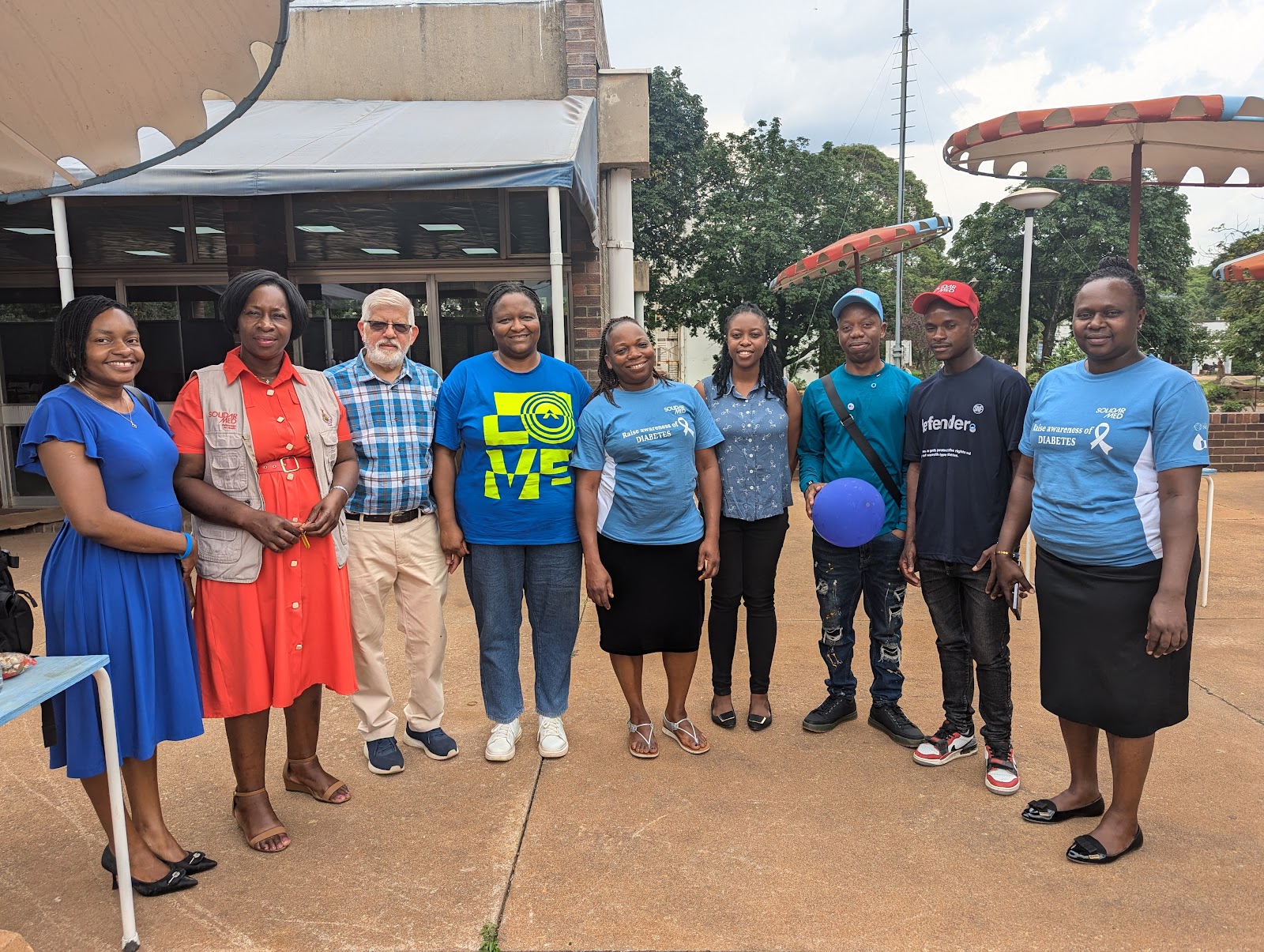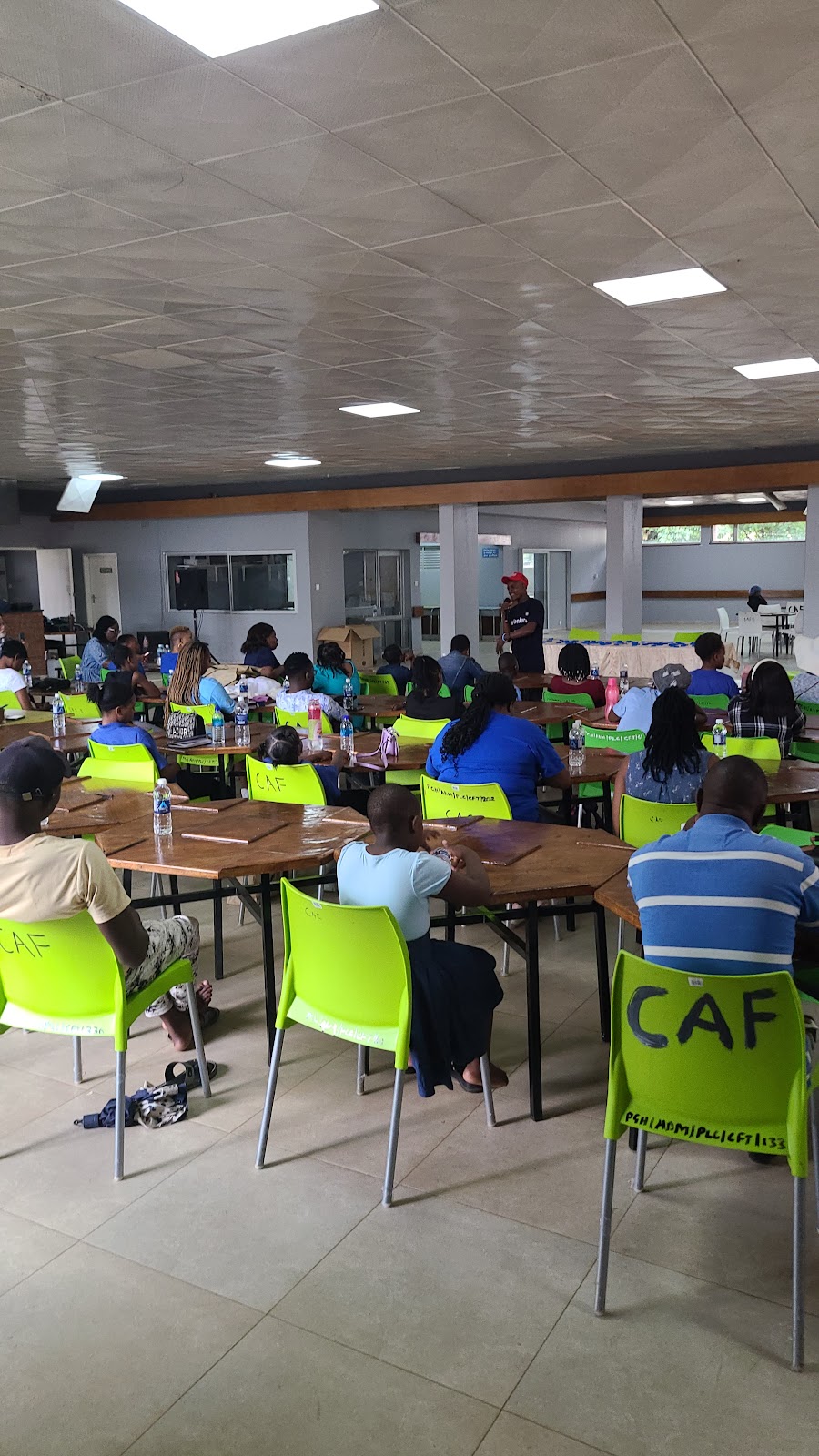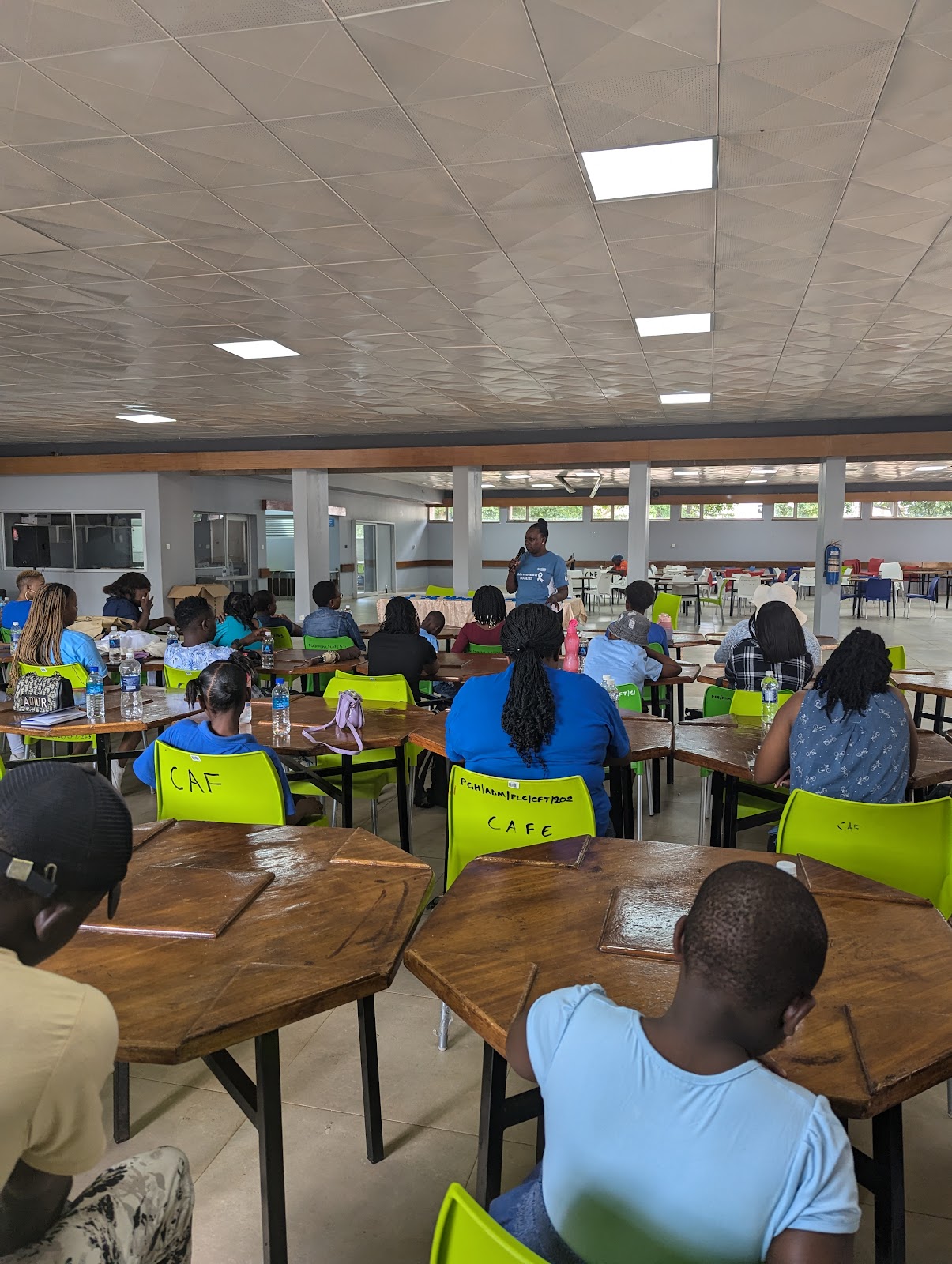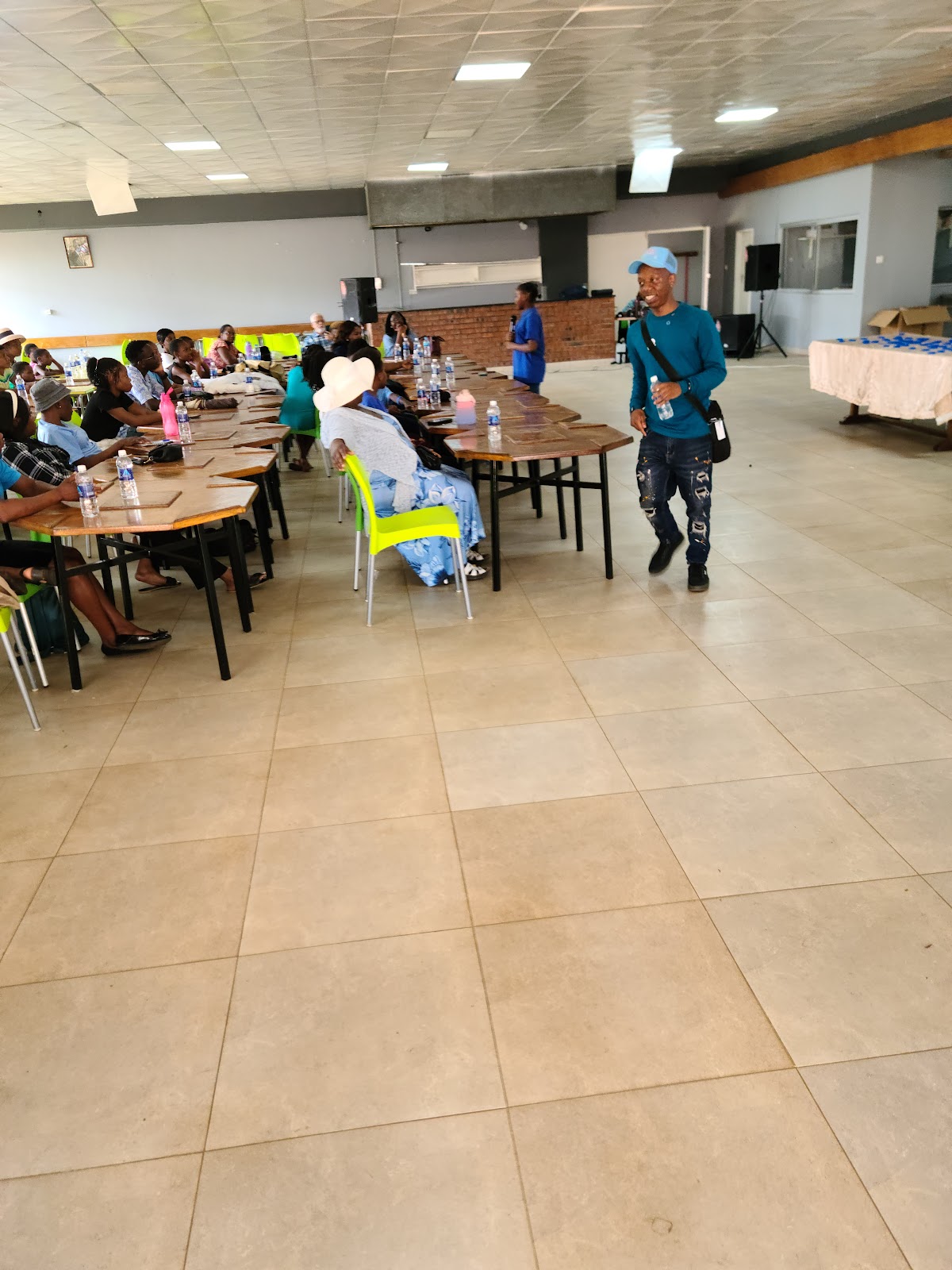From Awareness to Action: Empowering Communities in Diabetes Management
.png) |
| Cover Image |
The fight against diabetes is not just a medical challenge—it is a battle for equity, dignity, and the right to a life unhindered by preventable complications. This was the overarching theme of our recent workshop, where a diverse group of experts, advocates, and individuals living with diabetes (PWD) convened to exchange insights, empower communities, and inspire action. Through compelling stories of resilience, transformative innovations, and practical solutions tailored to our region's unique challenges, the event became more than a learning platform—it was a call to revolutionize diabetes care. Each voice echoed the urgency to redefine what it means to live with diabetes, not as a condition to endure, but as an opportunity to thrive through education, advocacy, and collaboration.
This report captures the essence of that powerful gathering, celebrating the courage of those who spoke, the innovation of those who shared solutions, and the unwavering commitment to a healthier, more inclusive future.
 |
| Dr. I Ticklay |
He introduced this year’s theme, “Diabetes & Wellbeing,” which highlights the importance of prioritizing both physical and mental health in diabetes management. Dr. Ticklay stressed that well-being encompasses more than glucose monitoring and medication—it also involves fostering resilience, addressing stigma, and empowering individuals to thrive. This set the tone for the workshop, reminding participants that diabetes care must be holistic, inclusive, and centered on improving quality of life.
Keynote Address by Dr. Prisca Mureriwa (Pediatric Endocrinologist)
 |
| Dr. Prisca Matyanga-Mureriwa |
Dr. Prisca Mureriwa delivered an enlightening keynote address, weaving together clinical insights and practical strategies to empower people living with diabetes (PWD). She emphasized the importance of maintaining blood glucose (BG) levels between 5-8 mmol/L before meals and after 2-3 hours to delay or prevent diabetes complications. She explained the importance of understanding correction doses, particularly keeping adjustments below 10% of the total daily dose to avoid insulin stacking and complications. Dr. Mureriwa underscored the value of daily BG monitoring, urging attendees to prioritize consistency in monitoring. With her trademark interactive approach, she encouraged participants to share their challenges and successes, fostering a collaborative learning environment. Beyond the medical realm, she also discussed managing diabetes burnout, recognizing its signs, and seeking timely support from medical teams, counselors, or loved ones. Through relatable analogies—like describing diabetes as a shadow that, though constant, can be carried with grace—Dr. Mureriwa reinforced the message that with the right tools and mindset, living well with diabetes is possible.
Trust Nechena (T1D Warrior, SolidarMed Peer Educator)
Trust Chigwedere captivated the audience with his personal journey of resilience and advocacy. Diagnosed with type 1 diabetes, he shared how he initially doubted whether he would live a fulfilling life. However, attending a diabetes camp hosted by SolidarMed transformed his perspective and ignited his passion for empowering others. His recent training as a T1D Warrior Educator with the Sonia Nabeta Foundation in Uganda has further equipped him to serve as a beacon of hope in his community. Trust highlighted the unique role peer educators play in bridging gaps in diabetes care, particularly in resource-limited settings like Masvingo, Zimbabwe. As someone living with a severe NCD, his presence in diabetes education initiatives inspires confidence and relatability among patients, demonstrating the power of lived experience in fostering trust and understanding within communities.
Sr. Joyline Chihota (Pen Plus Project, SolidarMed Zimbabwe)
Sr. Joyline Chihota provided an insightful overview of SolidarMed Zimbabwe’s Pen Plus Project, which focuses on managing severe NCDs, including diabetes, sickle cell disease, congenital heart disease, and asthma in Masvingo District. She detailed their innovative use of support groups and school-based campaigns to raise awareness and combat stigma. Sr. Chihota emphasized the crucial role of village health workers in delivering grassroots care and ensuring that NCD patients receive timely interventions. Her passion for community engagement and the practical steps she shared—such as creating diabetes clubs in schools and empowering families—showcased the transformative potential of integrating health education into daily life. Her presentation underscored the importance of collective action in addressing the multifaceted challenges of managing NCDs in rural and underserved areas.
Tadisa Madzinga (13-Year-Old with T1D, Diagnosed in 2023)
Tadisa Madzinga stole the spotlight with her heartwarming and inspiring account of her diagnosis journey. Diagnosed officially in April 2023 after months of symptoms like blurred vision and frequent urination, Tadisa recounted the misdiagnoses and emotional toll she endured before receiving proper care. She described how her initial high BG readings shocked her and how being denied food during her hospital stay left a lasting impression on her. Despite these challenges, Tadisa’s courage and optimism shone through as she shared how she gradually adapted to life with diabetes. Her story of overcoming stigma at school and excelling in sports, despite early restrictions, demonstrated her resilience. Tadisa reminded the audience that diabetes is not a barrier but a part of life that can be navigated with determination and support.
Thandeka Sibanda (Registered Dietician)
Thandeka Sibanda shared invaluable insights on the critical role of nutrition in managing diabetes. She emphasized the importance of avoiding added sugars, incorporating high-fiber foods, and consuming healthy fats like avocados, nuts, and seeds. Her practical advice included pairing carbohydrates with proteins—such as peanut butter on whole wheat bread or nuts with fruits—to stabilize BG levels. She encouraged moderation when consuming fruits and discouraged high-GI options like watermelon. Thandeka stressed that water should always be the number one beverage of choice for PWD and highlighted the benefits of simple, affordable snacks like maputi with peanuts. Her presentation not only provided actionable dietary guidance but also empowered attendees to make sustainable, health-conscious choices in their daily lives.
Yemurai Machirori (Advocate Living with T1D since 2004)
Yemurai Machirori shared her profound insights on navigating life as a woman with type 1 diabetes. Drawing from her personal experiences, she addressed the unique challenges of managing diabetes during her teenage years, menstruation, and motherhood. Her candid reflections resonated deeply with the audience, offering hope and practical strategies for young women and teens facing similar journeys. Yemurai’s emphasis on mental health and self-care, combined with her lived experience, demonstrated the importance of resilience and adaptability in thriving with diabetes. Her story served as a powerful reminder that diabetes does not define one’s potential or limit one’s dreams.
Heather Koga (Advocate Living with T2D for 11 Years)
Heather Koga provided a wealth of practical insights from her experience participating in the International Diabetes Federation’s (IDF) “Diabetes and Well-being” campaign. Heather emphasized the importance of self-care and community support in managing diabetes, sharing strategies she has successfully implemented in her own life. From addressing the mental and emotional toll of diabetes burnout to advocating for awareness around stigma and discrimination, her presentation was a testament to the power of lived experience in shaping impactful advocacy. Heather also highlighted the campaign’s focus on putting well-being at the center of diabetes care, inspiring attendees to prioritize their mental and emotional health alongside physical management.
Rufaro Gororo (Advocate Living with T1D since 2004)
Rufaro Gororo provided actionable advice on managing diabetes in challenging environments, such as college and the workplace. Her honest account of balancing professional aspirations with the demands of diabetes management resonated with young professionals in the audience. Rufaro discussed practical strategies for navigating stigma and building supportive networks in both academic and professional settings. Her presentation emphasized that with the right tools, planning, and mindset, PWD can achieve their goals and thrive in all areas of life.
 |
| Some of the participants |
This workshop highlighted the power of lived experiences, professional expertise, and community support in addressing the complex challenges of diabetes management. The speakers shared stories, strategies, and solutions that inspired, educated, and empowered attendees to take charge of their health and advocate for improved diabetes care in their communities.
Call to Action
This is the moment to act—not tomorrow, not next week, but now. The stories and insights shared in this report are not just anecdotes; they mirror the gaps in our healthcare systems and a roadmap for the work that lies ahead. If we fail to prioritize diabetes care today, we will face a generation burdened by preventable complications, lost potential, and unnecessary suffering.
Healthcare providers must step beyond the clinic walls and bring life-saving education and resources directly to communities. Advocates must challenge the stigma that shrouds diabetes, transforming fear and misinformation into empowerment. Policymakers must recognize that severe NCDs like diabetes are as urgent as any other public health crisis, and deserving of sustainable funding, research, and infrastructure. And for every individual reading this—whether you are living with diabetes, supporting someone who is, or simply invested in the well-being of your community—your voice, your action, and your determination are the catalysts for change.
The time for empty promises is over. We must build a future where no one is left behind in the fight against diabetes. Stand with us. Raise your voice. And together, let us create a world where everyone living with diabetes can access the care, support, and respect they deserve. This is not just a call—it is a demand for justice, equity, and humanity. Will you answer it?










.png)


Comments
Post a Comment